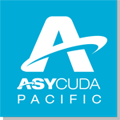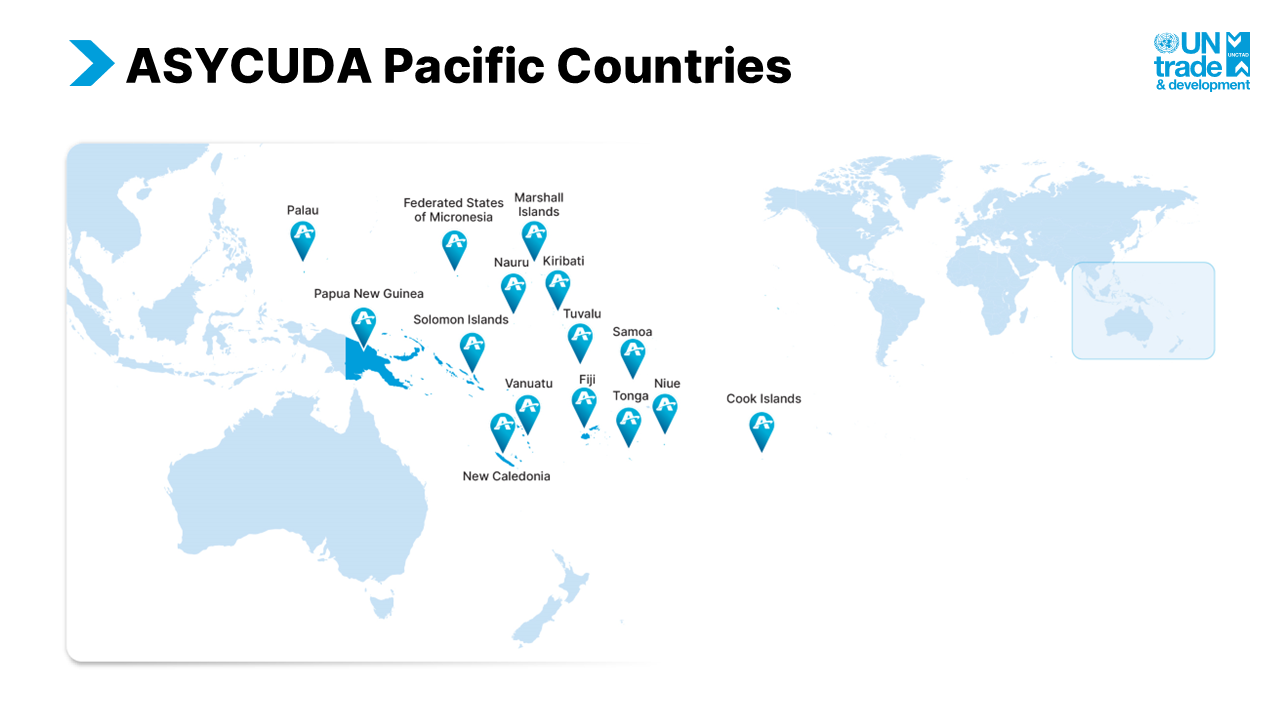The adoption of the UN Trade and Development’s (UNCTAD) Automated System for Customs Data (ASYCUDA) has enabled Pacific countries to transition from manual, paper-based customs processes to streamlined, digital systems.
This year, the Republic of Palau, the Federated States of Micronesia, and the Republic of the Marshall Islands implemented UNCTAD’s ASYCUDAWorld system.
Ahead of the implementation, the countries spent over two years providing customs staff with the knowledge, equipment and skills needed to transition to the new way of working.
Following the rollout, countries experienced significant improvements to customs processes, helping to facilitate growth in international trade.
The three Pacific countries from the Micronesian region can now benefit from increased government revenue, reliable trade data, reduced bureaucracy, lower customs clearance costs, and improved inter-agency coordination, among others.
In the Republic of Palau alone, revenue collection has surged by 20% since January 2024 compared to the same period last year.
According to Mr. John Tarkong Jr. the Director of the Republic of Palau’s Bureau of Customs and Border Protection, 39% of total government revenue is collected by customs.
“Palau has 297 ASYCUDAWorld users and the system has been consistently enabling efficient customs clearances.” This has reduced clearance times significantly from one day to an hour or two.
Business leaders like Mr. Deepak Buxani of Globus Trading Company in Palau, said “Businesses anticipated annual savings of approximately $1,000 due to reduced paperwork requirements” thanks to there being “no printing or photocopies required since everything is maintained electronically.”
The Republic of Palau’s Bureau of Customs and Border Protection has also noted significant improvements in compliance, particularly regarding the timely submission of essential documents and declarations.
Additionally, Mr. Randy Sue, the Assistant Secretary, Customs and Tax Administration, the Federated States of Micronesia (FSM), remarked that despite the geographic remoteness among islands and areas, ASYCUDAWorld was highly effective in connecting trading communities with customs.
“One of the things about FSM is the geographic isolation and remoteness of islands but ASYCUDAWorld helped us connect to those islands.”
Mr. Sue added, “The system made clearance of goods easier and faster including in these remote islands.”
Besides this, Mr. Doug Ajain, the Republic of Marshall Islands’ Chief of Customs said that by rolling-out of the system, “a major milestone was reached with the country’s customs processes being streamlined and reformed for efficiency and seamless trade.”
The successful implementation of ASYCUDAWorld in the three Micronesian countries is a key achievement of the IMPACT project, contributing to the standardization and simplification of customs operations across the Pacific region.
The digitalization was supported by the European Union (EU) funded Improving Pacific Islands Customs and Trade (IMPACT) project implemented by the UN Trade and Development.
The milestone underscores the value of collaboration and commitment to achieving the IMPACT project’s long-term trade goals.
The project began in 2021 with the aim of increasing and facilitating regional trade. One of the key approaches to achieving the goal was to assist countries by standardizing, simplifying and digitizing customs operations in line with international standards set by the World Customs Organization and the Revised Kyoto Convention.
Recognizing the significant achievement, the Team Leader for Development Cooperation and Partnerships at the EU Delegation for the Pacific, Mr. Erik Lindebo, remarked, “we are especially satisfied that through IMPACT, PICs are now connected in ASYCUDA, which will help operators to move goods faster and cheaper than before.”
“In order reap the full benefits from sustainable business and international trade, we strongly believe that the Pacific needs to integrate environmental and social standards into its trade policy, improve quality conformance and control systems, collect and organize market intelligence, and build business links,” Mr. Lindebo further remarked.
Despite the challenges faced as small countries, Mr. Lindebo said “EU projects like IMPACT aim to strengthen the Pacific States’ integration into global trade and create new market opportunities.”
Over the past two decades, UN Trade and Development has partnered with 15 Pacific nations and development partners to facilitate the digital transformation of their customs processes.

Port of Micronesia.
© UN Trade and Development
About ASYCUDAWorld: ASYCUDAWorld is a cutting-edge customs management system by UN Trade and Development, aimed at simplifying trade and customs processes.
About the IMPACT Project: Funded by the European Union, the IMPACT project seeks to enhance customs operations through technological advancements and capacity building.


